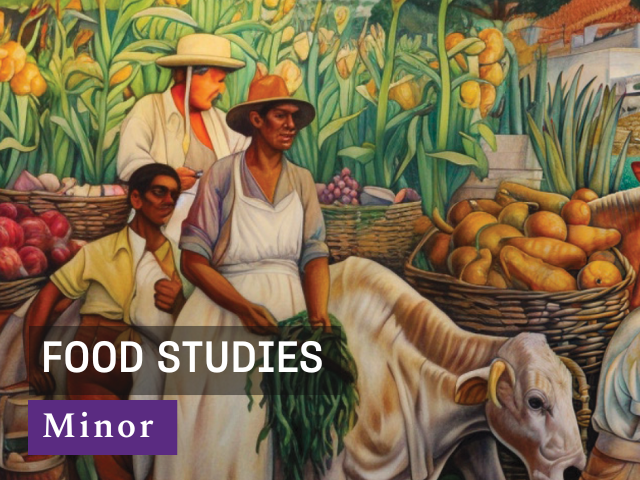The College of Arts and Sciences Introduces Food Studies Minor Exploring the Complexities of the Food Industry and How to Catalyze Change

The University of San Diego is now offering a new Food Studies minor designed to introduce students to the multifaceted issues surrounding food in today's world. This interdisciplinary program delves into various aspects of food, including ethical dilemmas in factory farming, global malnutrition challenges, and the intricate connections between food systems and climate change. With courses spanning across natural sciences, social sciences and humanities, the minor offers students a comprehensive understanding of food's significance in society.
Students pursuing the Food Studies minor at USD can expect to gain valuable insights into diverse fields. “Everybody eats, but not everybody reflects on their food: Where did it come from? Who cultivated or created it? How? Was it ethical? Sustainable? How do global supply chains and economies depend on the production and distribution of this food? Answering these questions implicates us in the numerous academic fields, from chemistry and business to sociology and philosophy,” says Dr. Nick Riggle, director of the Food Studies program at USD.
The program's curriculum is structured to prepare students for a wide array of career paths, including opportunities in the food industry, community organizations, health and wellness sectors, social impact companies and policy-making arenas. Additionally, the minor includes a capstone course, FOOD 495, which guides students through research exploration within the interdisciplinary realm of food studies.
“Minoring in food studies prepares students for a wide range of private, public, and nonprofit jobs, especially as climate-induced changes to our food systems affect jobs across the economy,” says Riggle. “Food studies minors will be especially well positioned to understand issues in the food industry, food activism, sustainability efforts and 'green' economies.”
Through its commitment to interdisciplinary scholarship, the new Food Studies minor equips students with the knowledge and skills needed to navigate critical issues such as racism, climate change, food justice, migration and food sovereignty.
By combining broad liberal arts training with a focus on effecting positive change in local, national and global food systems, the Food Studies minor is uniquely positioned to prepare students for meaningful engagement in addressing pressing societal challenges. With its emphasis on interdisciplinary pedagogy and research, the program offers students the opportunity to explore the diverse dimensions of food and its profound impact on society, paving the way for future leaders in the field of food studies.



